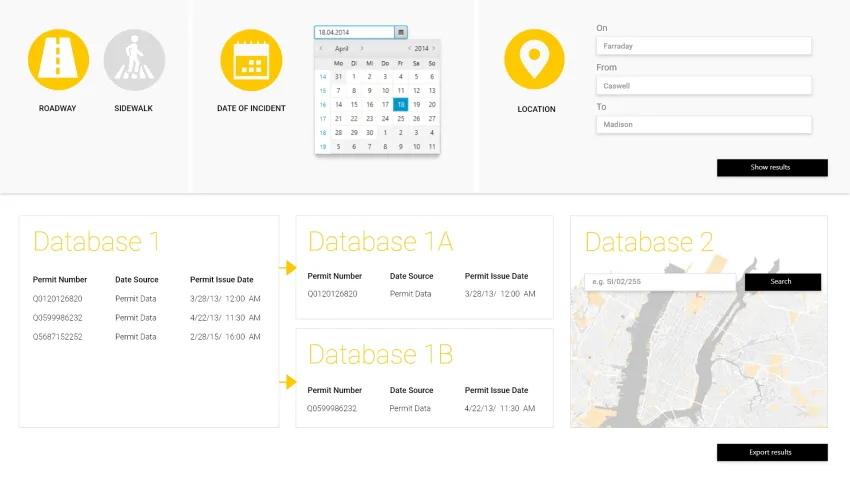How Mindbreeze solves Legal Cases for Government Institutions
Solving problems before they arise for Departments of Transportation
What's the biggest concern of every city government?
To ensure hard-earned taxpayer dollars are spent as efficiently as possible!
When somebody gets injured, or an accident happens on public streets or sidewalks, the city where the incident occurred could get sued and be determined liable for the damages. Cities worldwide have to deal with these claims on a weekly and sometimes daily basis, depending on the population and actual size of the city. However, if a city was not made aware of a particular hazard, a pothole, for example, their chances of being held accountable in court are slim.
From a labor perspective, going through every claim manually is not an option, as that would require a monumental amount of work and money. To paint a clearer picture, the current process with the cities we work with takes a paralegal five or more days to work on a case. Mindbreeze can run the same case in 1 hour from start to finish.
In addition, for any legal use case, it is critically important that the system is in a sound state.
Using Mindbreeze allows cities to be more competent and efficient by requiring fewer workers. All in all, by using Mindbreeze, the city is able to cut costs by 70%, and claims are processed in a matter of hours, not weeks.
Task
The cities we are working with have anything from 40 to 80 million records related to their streets, sidewalks, bridges, and transportation lines. When a lawsuit comes into the city, their first task is finding out if they were aware of the issue. If they were unaware of the problem, this is good news for the city from a legal perspective.
"Rather than finding a needle in the haystack, we want to ensure there is NO needle in the haystack."
The city will plug the coordinates or the street on which it happened into one of their data sets. A problem can occur with some information being identified as street names and others using coordinates (longitude and latitude), meaning there is a lack of consistency in the data filing. Also, sometimes claims are not straightforward if the occurrence was on the side of the road or in the center, etc. In addition, there are also date ranges attached that need to be checked parallel with the location.
Once they plug in the location and date range into "dataset one," they are given an ID number that applies to that specific location. Then, the employee plugs the ID number into "dataset two" and copies and pastes any relevant information into "dataset three" and so on until they verify whether they were made or not made aware of a specific issue. This is tiresome and long and simply not necessary with the right solution.
As mentioned, it is also critically important that the system implemented for legal use is in a perfectly sound state. This requires ensuring that all documents are correctly indexed and verification that correct results are being shown to the users. To accomplish this, metadata needs to be indexed the right way – just another area Mindbreeze helps cities tackle.
Solution
Firstly, Mindbreeze unifies location information, so those expressed in different formats become a non-issue to the city employees. Using Mindbreeze as their solution, the city can plug in the location and timeframe they are given without worrying about their search accuracy. Using the location data from a single input, any record filed at that spot will be automatically detected – whether in the form of formal complaints, permits, emails, or social media posts. Any history on any platform where the city could have been made aware of an issue would be revealed.
Now, all the city has to do is export the results into a zip file. Doing so will create a PDF, allowing them to export the search results they need to settle a suit. The city can clearly show the court they were not aware of a problem strictly based on search.
The result acts as a legal binder for proof of "unknowing" and quick resolutions for the city without wasting taxpayer money.
Cities we work with take advantage of the Mindbreeze best practice verification process to tackle the necessary verification requirements in legal use cases. Mindbreeze works closely with each customer to confirm every single document is appropriately indexed. Mindbreeze uses hundreds of successful examples to enable automated testing. Mindbreeze’s methodical approach allows customers to click a button and validate that the system is working correctly.
Need more metrics to convince you than cutting time and labor costs by 70%? Contact the Mindbreeze team to take advantage of our unique expertise in leveraging all kinds of data to build customized solutions for the end-user.

